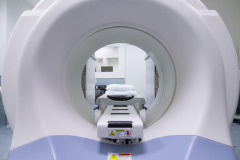What Is The Difference Between MRI and CT Scan?
When you are working with your healthcare provider to diagnose and treat a health condition, you may hear various test names and wonder what they entail and how they differ from each other. MRIs and CT scans are two very common tests that your doctor may order, but they serve different purposes and involve different types of technology.
At Advantage Diagnostics we offer both MRI and CT services. Here we will explain the difference between them and let you know some additional details so you’re better informed about what to expect if you need to have these tests done yourself.
What Is an MRI?
A magnetic resonance imaging (MRI) test utilizes technology that involves strong magnetic fields and radio waves. Together, these forces affect the protons found in water within the body. The resulting reaction is tracked and recorded by the MRI equipment. The end result is a visual representation rendered in 3D images of various parts of the body. Medical providers use MRI tests to peer inside the body without using invasive means. Through the resulting images, physicians can study detailed anatomical pictures of internal structures that help them to diagnose and treat various conditions.
What is a CT Scan?
A computed tomography (CT) scan utilizes X-ray imaging but it goes far beyond a standard X-ray to include a range of images taken at various angles. The resulting diagnostic image is then compiled to create detailed 3D images while a standard X-ray can only offer 2D results. A CT scan is a painless and non-invasive way for physicians to view the internal structures of the body, making it easier for them to diagnose and treat a range of conditions.
The Difference Between MRI and CT Scan
Both MRI tests and CT scans are non-invasive medical imaging techniques that offer medical professionals detailed images of internal structures within a patient’s body. But they differ in the technology used, how that technology gathers images, and the types of information that they provide. These two common tests may also be used to diagnose and treat different conditions.
While an MRI’s use of magnetic fields and radio waves makes it particularly useful in gathering accurate and detailed images of soft tissues, the X-ray technology used by a CT scan tends to be more useful in capturing cross-sectional images that are especially useful for viewing bones and organs. The differing types of technology used affect internal body structures in different ways, and so both soft tissues and dense matter like bones react differently. These different reactions are then captured in diagnostic images and used to assess the state of a patient’s organs, tissues, bones, muscles, blood vessels, and other internal structures.
Certain CT scans will require that the patient take a contrast agent in conjunction with the test in order to provide enhanced diagnostic images. MRI testing may not be possible if a patient has certain medical devices or implants. Testing may last just a few minutes for a CT scan or up to 30 minutes or more for an MRI, depending on the extent of testing that is being done. The logistics of testing are similar however, with both CT scans and MRI tests requiring patients to lie down on a table and remain very still for the duration of the test.
Both CT scans and MRI tests are extremely useful, but each is better suited for certain conditions. Depending on what your doctor suspects as the cause of your symptoms, they may need to order just a CT scan, just an MRI test, or both if they feel that this will yield the best, most comprehensive results. Whatever the case, Advantage Diagnostics can offer you the most up-to-date and comfortable testing options while still providing your doctor with the images they need to effectively diagnose and treat your condition.
CT and MRI Scans In Cleveland and Columbus, Ohio
If you are a patient in the Cleveland or Columbus, Ohio area and your doctor has prescribed an MRI or CT scan as part of your diagnosis, treatment, or monitoring plan, you have options. At Advantage Diagnostics, our open MRI and CT scan equipment is the best available equipment, especially if you have concerns about traditional MRIs. We understand that medical care is not a one-size-fits-all service and are proud to offer a range of modern testing services along with a team of expert radiologists who can quickly and accurately interpret your test results. Contact us today to find which of our locations is most convenient for you, to request or submit a patient referral form, and to learn more about our suite of services.

